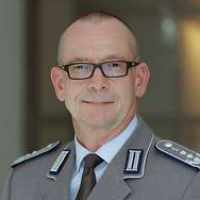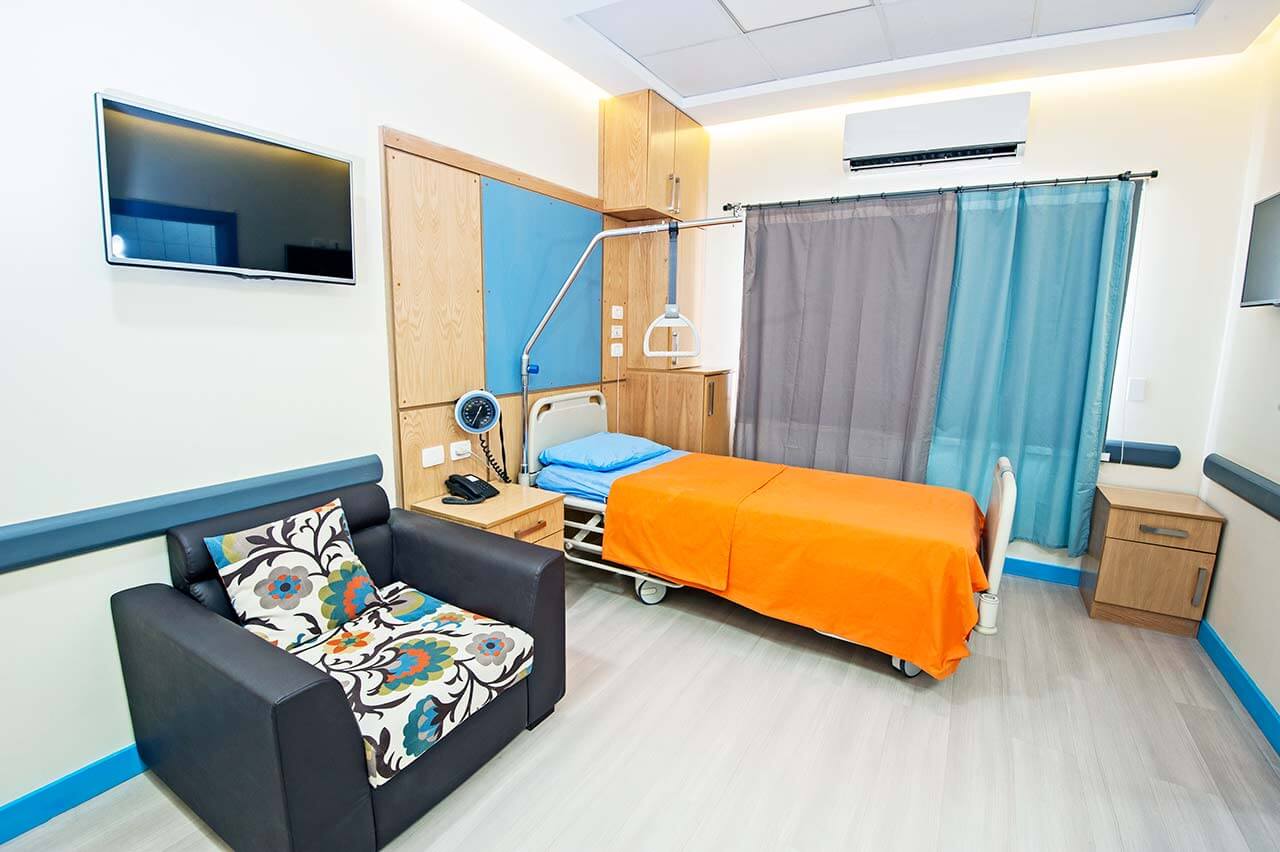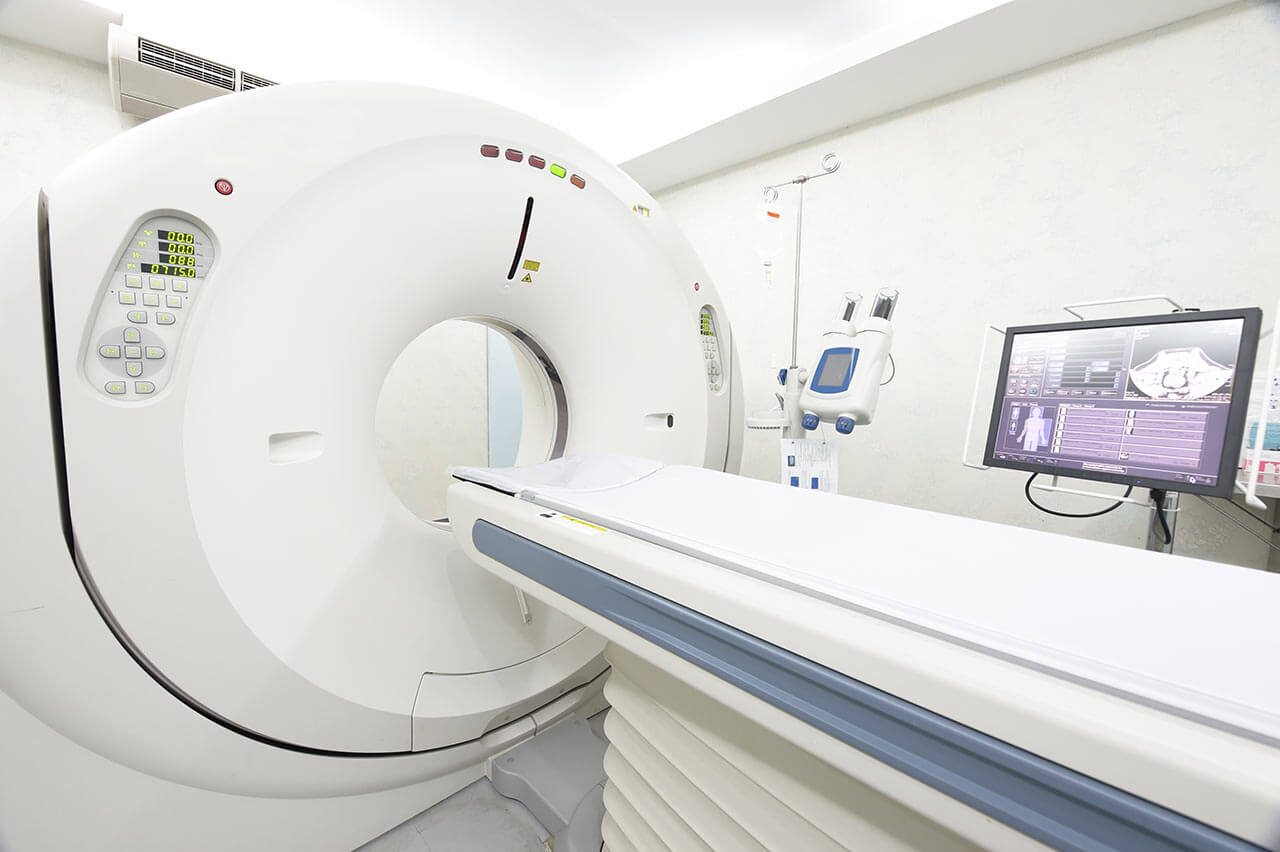
The program includes:
- Initial presentation in the clinic
- clinical history taking
- review of medical records
- physical examination
- laboratory tests:
- complete blood count
- inflammation indicators (CRP, ESR)
- abdominal ultrasound
- nursing services
- consultation of related specialists
- consultation of the chief physician and all leading experts
- development of individual treatment plan
- written statement
Required documents
- Medical records
- Abdominal ultrasoud (if available)
Service
You may also book:
 BookingHealth Price from:
BookingHealth Price from:
About the department
The Department of General and Abdominal Surgery, Hepatobiliary Surgery, Colorectal Surgery, Endocrine Surgery, Hernia Surgery and Bariatric Surgery at the Bundeswehr Hospital Berlin offers the full range of modern surgical interventions in the areas of its specialization. The experienced surgeons of the medical facility perform effective surgical treatment of various diseases of the gastrointestinal tract, including the liver, gallbladder, pancreas, pathologies of the rectum, anus and colon, as well as endocrine disorders. The department's specialists also successfully perform operations for morbid obesity. The priority focuses of the department's clinical practice are the treatment of abdominal cancers and hernia repair. The department actively uses sparing minimally invasive techniques that allow the patient to undergo surgical treatment through skin incisions no longer than 2-3 cm in size. Such an approach contributes to minimal pain, the absence of scars and a rapid recovery. The department's surgeons work in accordance with current clinical protocols and take care of the maximum safety of the surgical treatment. The Head Physician of the department is Dr. med. Niels Huschitt.
The department widely applies modern laparoscopic surgical techniques, with the help of which the specialists avoid traumatic skin and soft tissue incisions, but at the same time successfully cope with their surgical tasks. With appropriate clinical indications, surgical interventions can be performed on an outpatient basis. The department's patients also receive top-class intensive care. The multidisciplinary Intensive Care Unit employs specially trained doctors, nurses and technicians. The Intensive Care Unit has all the advanced facilities for the care of patients after surgery and patients in a critical condition. For example, various types of mechanical ventilation, renal replacement therapy and invasive monitoring are available here.
One of the main areas of the department's clinical activity is general and abdominal surgery. The surgeons of this profile perform operations for stomach, intestinal, esophageal and pancreatic diseases. The surgeons quite often perform resections of malignant gastrointestinal tumors. To provide comprehensive and effective care to patients suffering from cancer, doctors maintain close cooperation with the specialists in the field of chemotherapy and radiation therapy. An interdisciplinary tumor board (certified by the Berlin Medical Association) is held every two weeks, which serves to develop a treatment regimen and a follow-up monitoring program based on the stage of disease and the patient's general health condition. Even complex surgical procedures, such as partial liver removal in a case of metastases, are common practice here and they are performed with high success rates.
Another equally important focus of the department's work is hernia repair surgery. This pathology is quite common – the department's surgeons annually perform more than 500 hernia surgical procedures and have rich experience in this medical field. The department specializes in the treatment of inguinal, umbilical and incisional hernias. Since March 2015, the department has the status of a Center of Excellence for Hernia Surgery (certification of the German Society for General and Visceral Surgery (DGAV)). The surgeons usually prefer minimally invasive hernia repair, while open surgery is performed only in complex clinical cases. After the excision of the hernial sac, the tissues of the thigh or anterior abdominal wall are strengthened with artificial materials, using only the most modern and high-quality implants.
The medical facility also admits patients with diseases of the thyroid gland, parathyroid glands and adrenal glands. When performing interventions for endocrine disorders, the doctors almost always use intraoperative neuromonitoring and ultrasound guidance, which helps them not to damage healthy anatomical structures, such as the recurrent laryngeal nerve. Thyroid surgery is performed through small incisions in the front of the neck, which guarantees the patient an optimal aesthetic result and maximum safety. Patients can leave the hospital 2 days after the surgical procedure.
The team of the department's colorectal surgeons deals with the treatment of rectal and anal pathologies: hemorrhoids, anal fissures, anorectal abscesses, fecal incontinence, chronic constipation, rectal prolapse, benign and malignant neoplasms of the rectum and anus. The specialists carry out a full examination, based on the results of which they decide on the most effective treatment method. As a rule, operations are performed using minimally invasive techniques or through a transanal approach. With appropriate clinical indications, the healthcare professionals conduct laser therapy, for example, for hemorrhoids, anal fistulas, benign rectal and anal canal tumors.
The department's therapeutic offer is complemented by bariatric surgery. The surgical treatment of morbid obesity is the last-line therapy when diet, physical exercises and drug therapy fail, and excess weight becomes a threat to a person's life. Bariatric surgeons offer all modern types of surgical treatment for obesity, including gastric bypass surgery, sleeve gastrectomy and gastric banding. The optimal type of intervention is determined based on a specific clinical case. The specialists also perform revision bariatric interventions, which are characterized by a high degree of complexity. To consolidate the results of the surgical treatment, patients must follow a diet and be physically active, otherwise excess weight may return.
The department's surgical options include:
- General and abdominal surgery
- Surgery for stomach diseases
- Surgery for bowel diseases
- Surgery for esophageal diseases
- Surgery for pancreatic diseases
- Hepatobiliary surgery
- Surgery for liver diseases
- Surgery for gallbladder and bile duct diseases
- Colorectal surgery
- Surgery for hemorrhoids: Longo procedure (hemorrhoidopexy) and Doppler-guided hemorrhoidal artery ligation
- Sphincter-preserving surgery for anal fistulas
- Anal LIFT surgical procedure
- OVESCO clipping
- Reconstructive interventions on the sphincter
- Fissurectomy
- Lateral internal partial sphincterotomy
- Removal of anal skin tags
- Removal of genital warts
- Laparoscopic, transanal and anal surgical procedures for rectal prolapse
- Laparoscopic resection of the sigmoid colon
- Rectopexy
- Transanal repair of rectocele
- Removal of coccygeal fistulas
- Laser interventions
- Endocrine surgery
- Surgery for thyroid diseases
- Surgery for parathyroid diseases
- Surgery for adrenal diseases
- Hernia surgery
- Surgery for inguinal hernias
- Lichtenstein hernioplasty
- Shouldice technique
- Total extraperitoneal hernia repair
- Transabdominal preperitoneal patch plasty
- Surgery for umbilical hernias
- Surgery for incisional hernias
- Surgery for inguinal hernias
- Bariatric surgery
- Gastric bypass surgery
- Sleeve gastroplasty
- Gastric banding
- Other medical services
Photo of the doctor: (c) Bundeswehrkrankenhaus Berlin
About hospital
The Bundeswehr Hospital Berlin enjoys a reputation as one of the leading medical facilities in Germany, where patients receive top-class medical care corresponding to the high standards of European university medicine. The medical center is an academic hospital of the Charite University Hospital Berlin – the largest and the most reputable in all of Europe. The main clinical focuses of the medical facility include emergency care, traumatology, urology, internal medicine, surgery, neurosurgery, neurology, nuclear medicine and others. The hospital offers 15 specialized departments, whose medical teams guarantee excellent treatment results, safety and an individual approach to their patients.
The hospital's staff consists of more than 1,100 competent employees. They work hand in hand to provide their patients with comprehensive and the most effective treatment. Of paramount importance is an individual approach to each patient and his clinical case. The specialists are always open to a dialogue with their patient, tell about the specificities of the upcoming treatment and its expected results. Whenever required, it is possible to involve experienced psychologists in the therapeutic process, who will help the patients to get rid of depressive states and set themselves up for a favorable treatment outcome.
The hospital has at its command state-of-the-art technical resources: equipment for minimally invasive interventions, diagnostic and therapeutic endoscopic procedures, navigation systems, advanced surgical microscopes, various laser devices, imaging systems for the accurate examinations and percutaneous interventional procedures.
The hospital has a quality management system, thanks to which it can strictly control the quality of patient care and other internal processes. In addition, the healthcare facility became the first Bundeswehr hospital, which was awarded the KTQ® certificate (06.02.2006). The KTQ® certification is carried out every three years and the hospital always passes it successfully. And then in 2000, the hospital was certified in accordance with the DIN EN ISO 9001:2000 standards. These achievements testify to the outstanding quality of medical care and the leading position of the hospital in the healthcare sector.
Photo: (с) depositphotos
Accommodation in hospital
Patients rooms
The patients of the Bundeswehr Hospital Berlin live in comfortable single and double patient rooms. Each patient room is equipped with an ensuite bathroom with a shower and a toilet. The patient room furnishing includes a comfortable bed, a bedside table, a TV and a telephone. To ensure a pleasant hospital stay, here is a library with an excellent choice of audiobooks, magazines and games. There is also a beautiful park on the territory of the hospital where one can enjoy peace, clean air and beautiful nature.
Meals and Menus
The hospital offers delicious and healthy three meals a day: a buffet breakfast, a hearty lunch and a light dinner. Every day, patients have a choice of three menus. Vegetarian dishes are also available.
If for some reason you do not eat all the foods, you will be offered an individual menu. Please inform the medical staff about your dietary preferences prior to the treatment.
Further details
Standard rooms include:
Accompanying person
Your accompanying person may stay with you in your patient room or at the hotel of your choice during the inpatient program.
Hotel
You may stay at the hotel of your choice during the outpatient program. Our managers will support you for selecting the best option.




